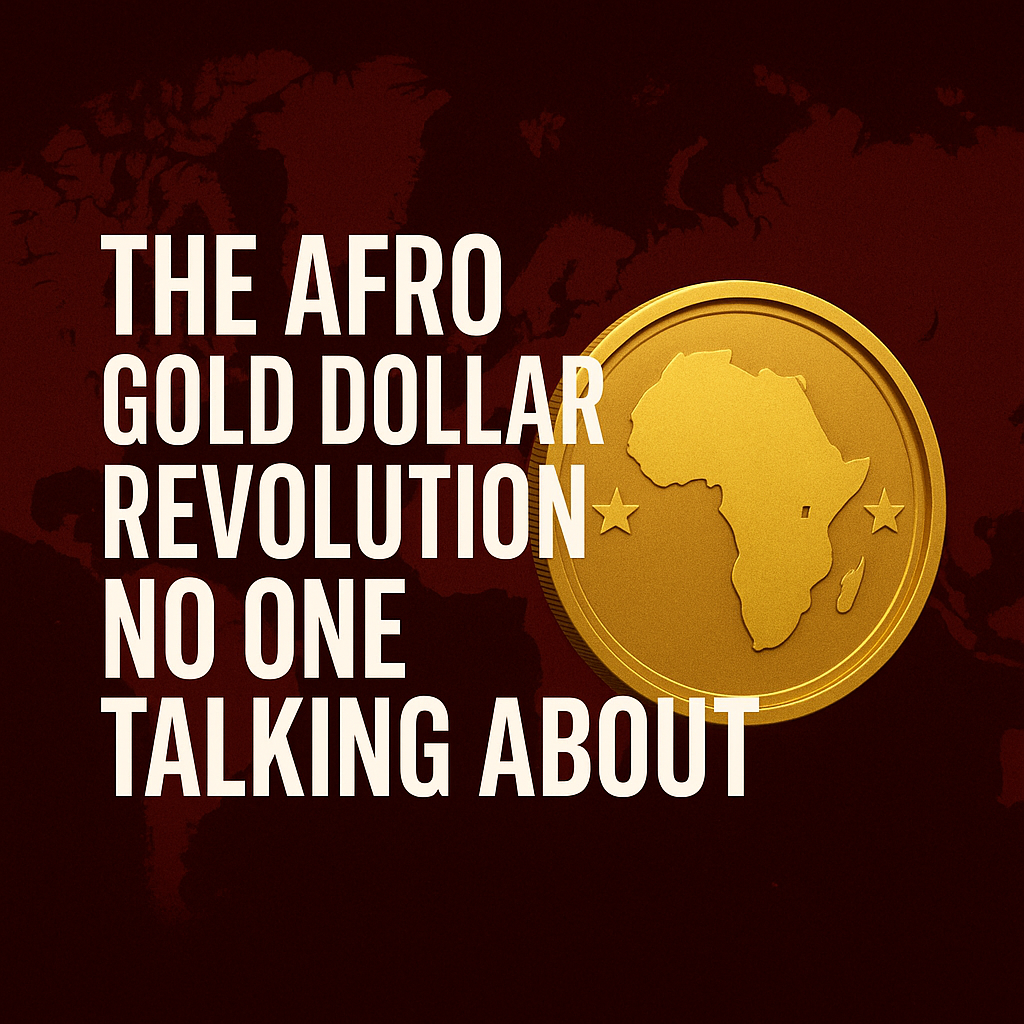
The Afro Gold Dollar Revolution No One Talking About
Stablecoins have exploded into a $15 trillion-dollar market. From cross-border remittances to crypto trading, they’ve become the invisible pipes moving money around the world. Yet here’s the shocking truth: 40% of all stablecoin transactions already happen in Africa.
And still, Africa doesn’t control the liquidity.
Africa’s Missing Piece in the Stablecoin Boom
Right now, Africans rely on foreign stablecoins—USDT, USDC, and others pegged to the U.S. dollar. They move billions across borders, power fintech apps, and even fund local businesses. But there’s a catch:
- The liquidity pools are controlled offshore.
- African users can spend but can’t tap into the same deep liquidity that Wall Street or Silicon Valley enjoy.
- Fees, restrictions, and lack of local access keep wealth extraction tilted outward, not inward.
It’s a one-way street—and Africa deserves better.
The Case for the Afro Gold Dollar
Now imagine this: a stablecoin built in Africa, for Africa, on Africa’s own blockchain. That’s the vision of the Afro Gold Dollar (AGLD).
- Backed by US Treasuries: The most trusted asset on earth.
- Powered by a Utility Token: Driving liquidity, staking, and payments within the ecosystem.
- Designed for Africa’s Economy: From farmers in rural villages to entrepreneurs in bustling cities.
This isn’t just about money—it’s about sovereignty. He who controls the liquidity, controls the future.
From Village Farms to a Continental Currency
The story of the Afro Gold Dollar started with something simple: a need to provide liquidity for farmers in a small village. Farmers, like those in my mother’s community, struggle to get credit, even though their cattle, crops, and land hold real value.
We asked: What if we could tokenize that value?
What started as a solution for one village has grown into a mission for an entire continent. The Afro Gold Dollar isn’t just another stablecoin—it’s the backbone of Africa’s financial independence.
Why This Moment Matters
- $15 trillion in stablecoin transactions means the infrastructure already exists.
- 40% in Africa shows the demand is already here.
- What’s missing is ownership of the rails that move the money.
If Africa builds its own stablecoin infrastructure, powered by its own blockchain and utility token, the wealth stays in Africa. Farmers get funded. Entrepreneurs get liquidity. Nations get stronger.
The Future of African Finance is On-Chain
The world is entering the age of programmable money. Whoever controls the code writes the rules. For too long, those rules have been written far from Africa. The Afro Gold Dollar changes that equation.
This is more than a financial product. It’s a movement. A chance for Africa to leapfrog old systems and take its place at the center of the digital economy.
The question isn’t if Africa will have its own stablecoin.
The question is: will you be part of the revolution when it happens?
Leave a Reply